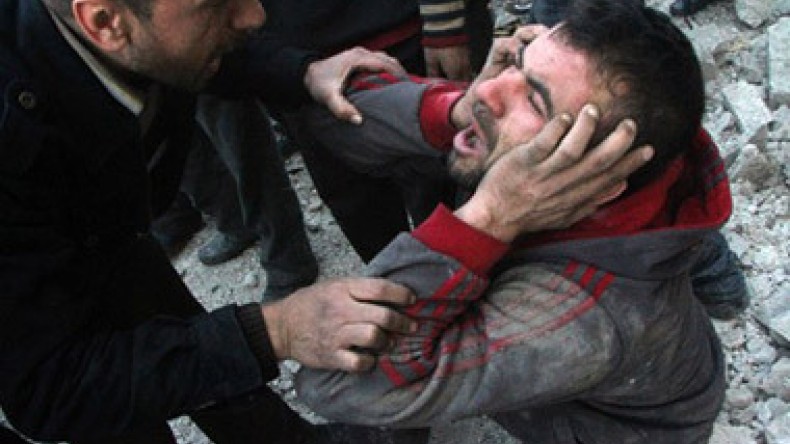
Hundreds killed in week of punishing air assaults in Aleppo
Nearly 500 people have been killed in more than a week of punishing air raids on Aleppo in northern Syria, according to the opposition Local Coordination Committees, as helicopters dropping so-called barrel bombs targeted the city, CNN reported.
The Syrian government has continued to relentlessly fire on rebel-held sections of the city after days of continued air assaults.
Barrel bombs -- drums packed with explosives and shrapnel -- can level entire buildings with one hit.
Since December 15, 495 people have been killed in Aleppo, the rebel stronghold, the Local Coordination Committees said.
Dozens were killed every day last week, with the heaviest toll on Sunday when 92 people died.
The United States condemned the "indiscriminate" bombings on civilians in a statement issued by White House Press Secretary Jay Carney on Monday.
"The Syrian government must respect its obligations under international humanitarian law to protect the civilian population," Carney said. "The Syrian government must fulfill its November commitment to do more to facilitate the safe and unhindered delivery of humanitarian assistance, so that millions of Syrian men, women, and children have access to urgently needed services. To bring the suffering of the Syrian people to an end, it is imperative that Syrians reach a comprehensive and durable political solution to end the crisis in Syria."
The Syrian government has said the operations are targeting "terrorist groups" in neighborhoods of Aleppo, saying "scores of terrorists were killed and others were wounded," according to the state-run Syrian Arab News Agency.
Overwhelmed doctors frantically scurried over the weekend to help scores of patients left "dying on the floor" during the punishing assault.
"There was a big massacre today," Dr. Ammar Zakaria told CNN via Skype on Sunday.
"We were treating shrapnel wounds, deep abdominal and brain injuries. I just lost count of the amputations."
"A lot of victims died before arriving to the hospital. Many were inside the hospital, and we didn't have the resources to help all the cases," Zakaria said. "We didn't have enough beds to help them all. People were dying on the floor."
Newsfeed
Videos






























